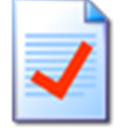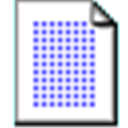Unlocking File Integrity: Top DeadHash Alternatives You Need to Know
DeadHash is a popular lightweight utility designed to help users calculate and compare file hashes. Its core function is to provide an easy way to verify that downloaded files or other data haven't been corrupted, offering support for various hash algorithms like MD5, SHA-1, SHA-256, and CRC32. While DeadHash serves its purpose well, many users seek a DeadHash alternative that might offer different features, platforms, or user experiences. Whether you need more advanced hashing options, shell integration, or cross-platform compatibility, there's a strong likelihood you'll find a suitable replacement.
Top DeadHash Alternatives
If you're looking to enhance your file integrity verification process, explore these excellent DeadHash alternatives, each bringing its own strengths to the table.

HashCheck Shell Extension
HashCheck Shell Extension is a fantastic open-source DeadHash alternative for Windows users, integrating seamlessly into the Windows file-properties dialog box. It supports a wide array of hash functions including CRC-32, MD5, SHA-1, SHA-2, and SHA-3, making file integrity verification incredibly convenient with its shell integration and Windows Explorer extension features.

Hashtab
Hashtab offers a fast and simple solution for file integrity checks, downloaded by users worldwide as an MD5 checker or for more advanced verification. This DeadHash alternative is available for Windows, providing both free personal use and paid options, and boasts features like bulk hashing and shell integration for ease of use.

GtkHash
GtkHash is an open-source, cross-platform DeadHash alternative supporting a vast number of hash functions including CRC32, MD5, SHA1, SHA2, SHA3, and many more. It's available on Windows, Linux, BSD, and various desktop environments like Cinnamon, GNOME, MATE, and Xfce, making it a highly versatile choice for users across different operating systems.

HashMyFiles
HashMyFiles is a small, free utility for Windows that allows you to calculate the MD5 and SHA1 hashes of one or more files in your system. This DeadHash alternative is highly portable, meaning you can run it directly from a USB drive without installation, making it perfect for on-the-go file verification.

checksum
checksum is an easy-to-use, no-nonsense BLAKE2, SHA1 & MD5 hashing program for Windows, Linux, and BSD. This DeadHash alternative stands out with its ability to create and verify hashes of files and folders, even whole drives, and includes features like support for 64-bit systems, drag-and-drop functionality, encryption, and folder comparison.

CHK Checksum Utility
CHK is an advanced, free checksum utility for Windows designed to help you verify file integrity, find duplicates, and much more. As a DeadHash alternative, it offers useful features like a duplicate file finder, support for eD2K/eDonkey protocol, portability, and support for SHA256 and SHA512 hashes.

RHash
RHash (Recursive Hasher) is an open-source console utility for computing and verifying hash sums of files, available for Windows, Linux, and BSD. This DeadHash alternative supports a wide range of algorithms including CRC32, MD5, SHA1, SHA256, SHA512, and Tiger, featuring command-line functionality, support for eD2K/eDonkey protocol, MAGNET links, and portability.

Md5Checker
Md5Checker is a free, fast, lightweight, and easy-to-use tool for Windows to manage, calculate, and verify MD5 checksums of multiple files/folders. As a portable DeadHash alternative, it excels in its simplicity and efficiency for MD5 verification.

MD5 & SHA Checksum Utility
MD5 & SHA Checksum Utility is a freemium tool for Windows that allows you to generate CRC32, MD5, SHA-1, SHA-256, SHA-384, and SHA-512 hashes of single or multiple files. This DeadHash alternative offers convenient drag-and-drop functionality and Windows Explorer integration for a streamlined user experience.
With a variety of powerful and versatile DeadHash alternatives available, you have ample choice to find the perfect tool for your file integrity verification needs. Consider factors like platform compatibility, open-source status, and specific features to select the best fit for your workflow and ensure your files remain uncorrupted.